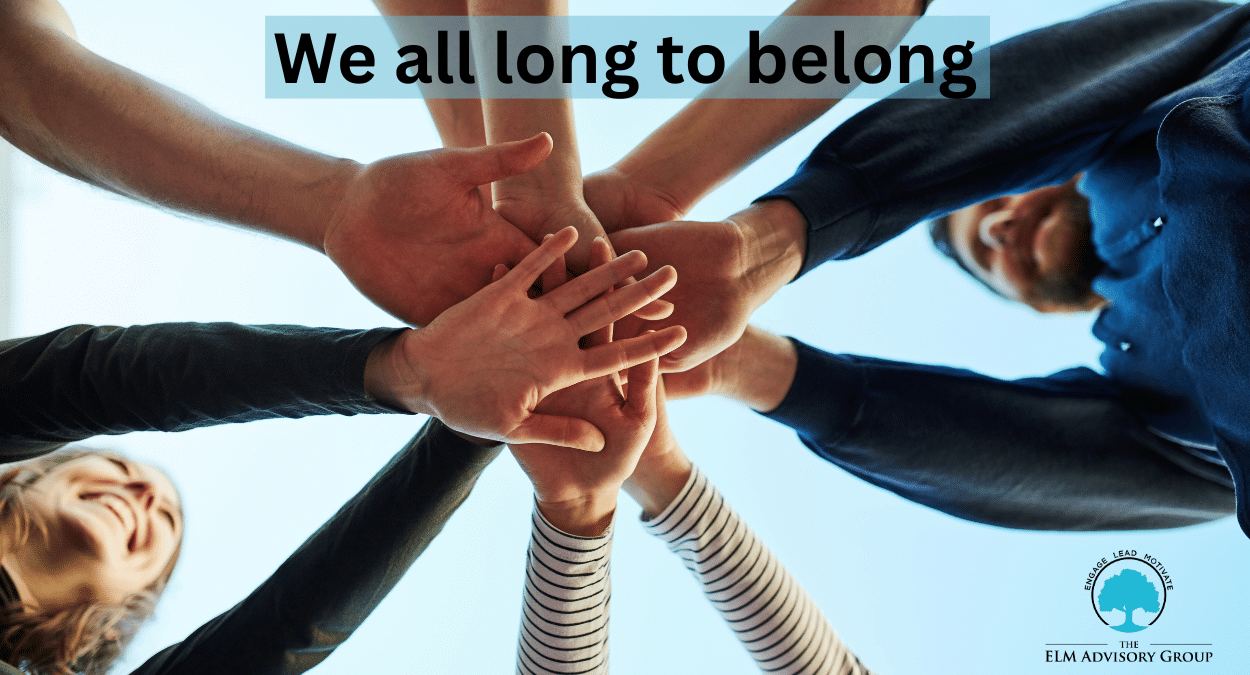Here’s Why Belonging Is So Important for Your Mental Health

At our core, human beings are social creatures. We thrive when we feel accepted, valued, and supported by the communities around us. This sense of belonging isn’t just a “nice-to-have”; research shows it’s crucial for our mental and physical well-being. When we talk about belonging, we refer to a fundamental human need—one that can powerfully influence our stress levels, resilience, and overall happiness.
This blog article was inspired by personal experiences in professional communities that have enriched my journey—including organizations like ICF (International Coaching Federation), Toastmasters, and LeanIn. While not everyone may be familiar with these, the lessons apply universally: when we find belonging, we find strength.
In this article, we’ll explore why belonging plays such a pivotal role in our mental health, how it directly supports our emotional and physical well-being, and offer actionable tips to help you foster greater belonging in your own life.
The Power of Connection
Belonging is the feeling that one experiences when they are a part of something larger than themselves. Whether it’s a professional group, a volunteer organization, or a local community, being part of a collective often provides:
- Shared Purpose: A group aligned around values or goals gives you a sense of direction.
- Emotional Support: Supportive environments help buffer life’s challenges and reduce stress.
- Opportunities for Growth: Engaging with like-minded peers fosters development through networking, mentorship, and learning.
How Belonging Impacts Mental Health?
Feeling connected enhances self-esteem and reduces stress, which in turn can improve resilience. Here’s a closer look at why:
- Stress Management
When you have people to lean on for advice or simply to vent, everyday frustrations become more manageable. This support network helps prevent stress from escalating into burnout or anxiety. - Resilience and Coping Skills
Knowing you’re not alone in your experiences equips you with the mental fortitude to bounce back from setbacks. A sense of belonging fosters emotional safety, which enables you to cope effectively during challenging times. - Better Health Outcomes
Social connections have been linked to improved physical health markers. On the flip side, feeling isolated or excluded may correlate with negative health effects such as elevated blood pressure and weakened immunity.
Physical Health Benefits
Beyond mental and emotional wellness, belonging contributes to tangible physical benefits as well:
- Reduced Cortisol Levels: Positive social interactions can help lower the body’s stress hormone, cortisol, leading to a healthier immune system.
- Improved Heart Health: Strong social connections are often associated with a lower risk of cardiovascular issues.
- Enhanced Quality of Life: When you feel grounded in a supportive network, you’re more likely to maintain healthy habits like regular exercise, balanced nutrition, and quality sleep.
Practical Ways to Cultivate Belonging
Here are a few strategies to actively seek and strengthen your sense of belonging:
- Join Professional or Community Groups
In my own journey, being part of organizations like ICF, Toastmasters, and Lean In has offered invaluable opportunities for connection, personal growth, and leadership development.
You don’t need to join a specific group to experience belonging, what matters is finding spaces that resonate with you. Whether it’s a professional network, industry association, local club, volunteer initiative, fundraiser, or hobby-based community, the possibilities are endless.
The key is this: show up where you feel seen, heard, and valued. That’s where true belonging begins.
- Engage Authentically
Belonging isn’t just about being present, it’s about showing up as your true self. Share your experiences, ask questions, and offer help where you can. Authentic engagement encourages deeper connections. - Reach Out and Follow Up
Consistency is key to building strong bonds. Schedule coffee chats or virtual check-ins with people who inspire you. Regular communication cements relationships and grows your support network. - Use Online Platforms Wisely
Social media can be a powerful tool for connection—if you approach it with intention. Seek out positive, growth-oriented groups and individuals. Stay mindful of digital boundaries to prevent overwhelm. - Prioritize Your Well-Being
Cultivating belonging starts with self-awareness. Practice mindfulness, journal your thoughts, or talk to a coach or therapist to understand your needs and boundaries. When you know yourself better, you can form deeper, more meaningful connections.
Conclusion
Belonging is much more than a buzzword — it’s an essential component of a healthy, fulfilling life. From boosting mental resilience to improving physical well-being, the positive ripple effects of being part of a supportive community are undeniable.
Here’s your challenge: How are you actively seeking and cultivating belonging in your own life? Whether you step into a new professional group, reach out to an old friend, or join a local organization aligned with your interests, every action you take to connect more genuinely will pay dividends in your mental, emotional, and even physical health.
This Blog Post Was Inspired By:
Want to see the original inspiration behind this deeper dive? Check out the LinkedIn post and video here. It explores why a sense of belonging is crucial for your mental health, along with reflections on how communities, such as the ICF North Texas chapter, can foster genuine connections.



